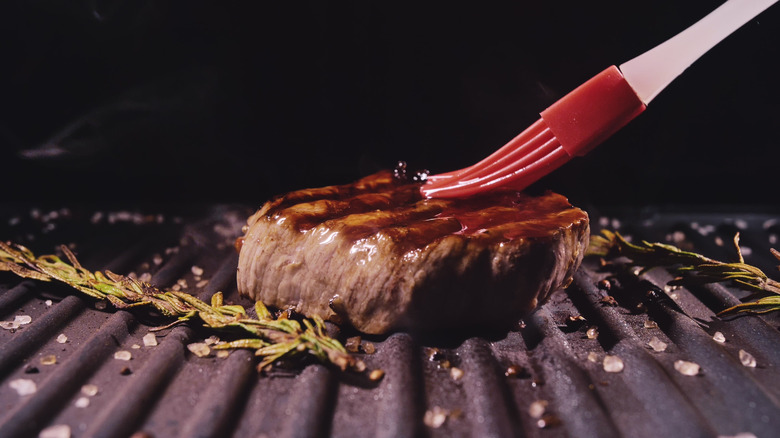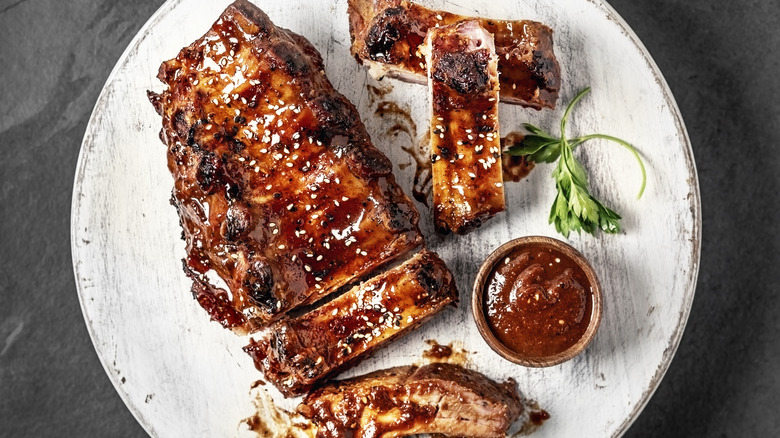The Ingredient Your Grilled Steak Sauce Should Always Include (And Why)
While steak sauces are often poured on the meat after it is cooked, they can also be applied as a glaze while it is grilling. Meat expert Pat LaFrieda may have had the latter use in mind when we asked him to recommend the best ingredient to use in a steak sauce since he suggested adding a sweet element. As he explains, sugar can facilitate the caramelization process.
LaFrieda, who was one of the chefs tapped to appear at the U.S. Open's culinary event in 2024, runs a namesake business called Pat LaFrieda Meat Purveyor. His company not only sells meats of all types but also offers a signature condiment called Pat LaFrieda Butcher's Reserve Steak Sauce made with a sweet balsamic vinegar reduction. He says, "The balsamic is the base of our steak sauce," and calls the flavor "incredible." Of course, balsamic vinegar isn't the only sweet ingredient you could add to a steak sauce-slash-glaze. "B***hin' Kitchen" host Nadia G. makes steak sauce from balsamic vinegar mixed with maple syrup, while our soy bourbon steak includes brown sugar in the marinade. Trendy hot honey can also be used to add sweetness and spice to a steak sauce.
You can also repurpose a sweet marinade as steak sauce
In some recipes, you may find a glaze doing double duty as a marinade, with a portion of the liquid being set aside to brush on the meat as it cooks. But what of the leftover marinade? It seems a shame to pour it away, especially if you've gone to the trouble of making a Pat LaFrieda-endorsed balsamic reduction. However, it can't be used as-is since this liquid may be contaminated with the same bacteria that makes eating steak tartare such an iffy proposition. Luckily, boiling can redeem the marinade for use as a steak sauce or glaze.
As per the U.S. Department of Agriculture, allowing used marinade to come to a boil will kill off any potentially harmful pathogens. Once it comes to a rolling boil, you can switch off the heat and let it cool down, then it'll be good to go for all your glazing and saucing needs. If your marinade has a sweet element, though, you'll need to keep a close eye on the temperature, since sugar may start to burn at just 265 F. Be aware, too, that boiling will thicken the sauce and may also change the flavor of an acidic element like vinegar, as this ingredient tends to taste a lot less vinegary when cooked. This shouldn't matter if you're using a balsamic reduction a la LaFrieda, though, since it will already have been boiled down into something that's sweet as well as sour.

